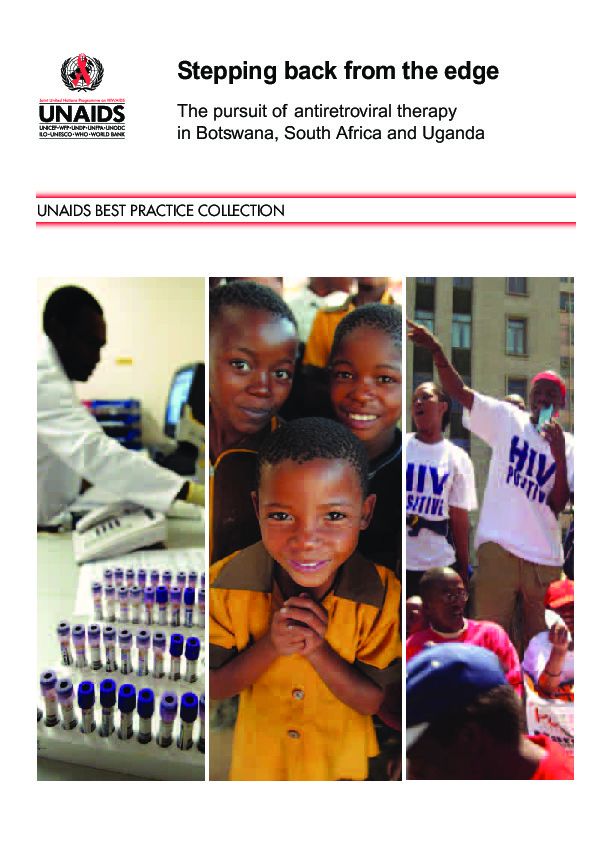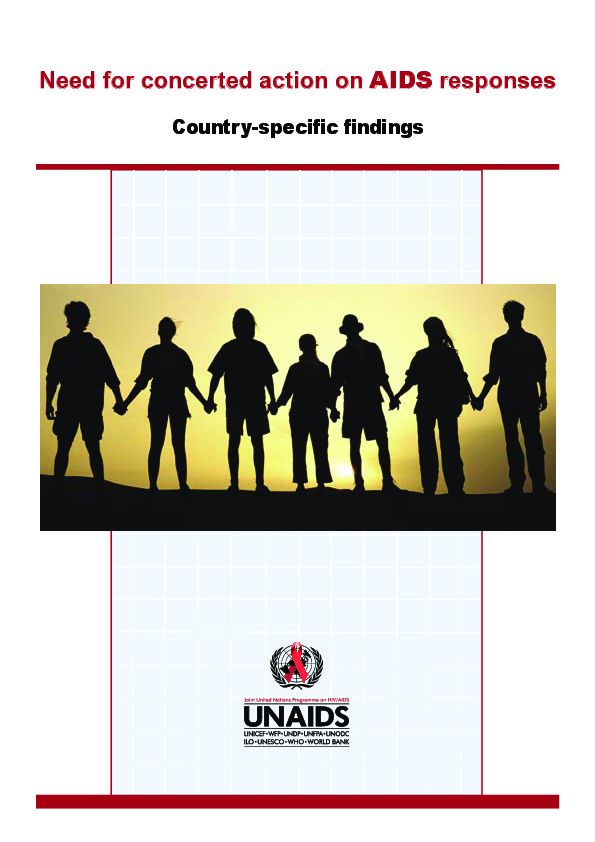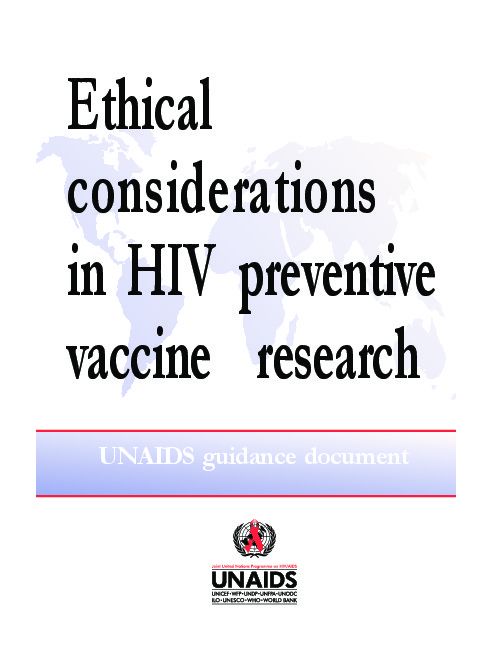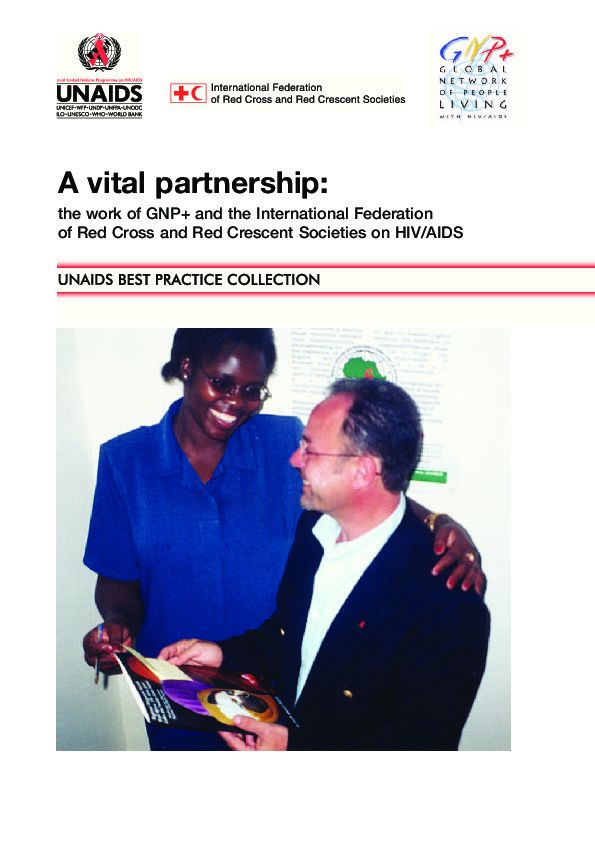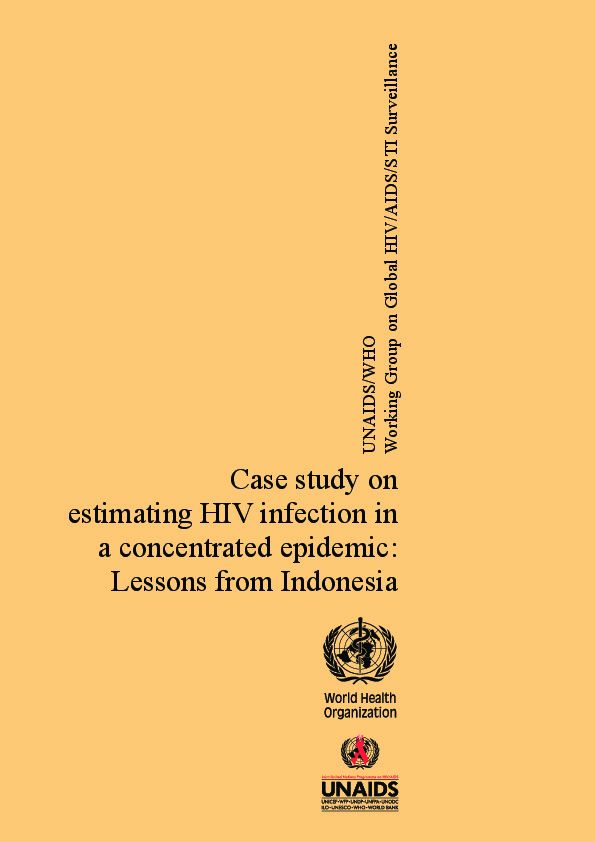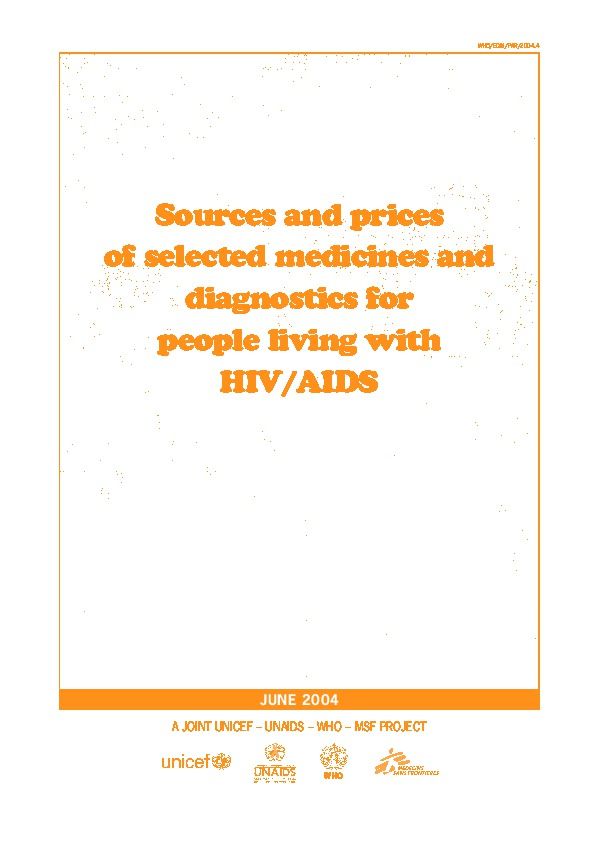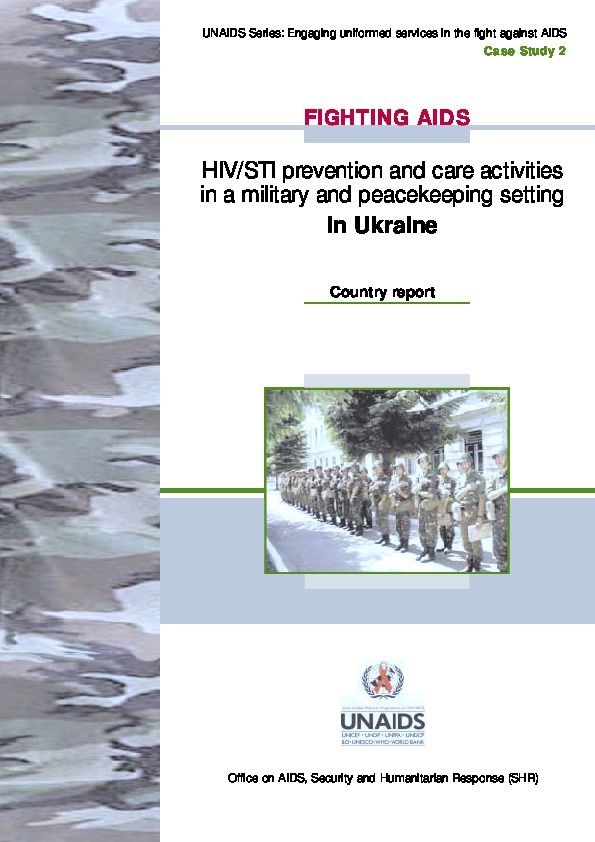Documents
Level and flow of national and international resources for the response to HIV/AIDS, 1996-1997
13 April 2004
The study used three sources of information to track HIV/AIDS financing in 1996 and 1997. First, 15 official development assistance (ODA) agencies reported on their financing of HIV/AIDS activities. Second, 64 developing countries and countries in transition provided information on the funds they spent on HIV/AIDS programmes. Third, data were gathered from the European Commission (EC), the UNAIDS Secretariat, UNICEF, UNDP, UNFPA, UNESCO, WHO and the World Bank through reviews of agency records, financial reports and interviews.
Documents
Stepping back from the edge : the pursuit of antiretroviral therapy in Botswana, South Africa and Uganda
22 April 2004
In 2003, UNAIDS is boosting its efforts to secure universal and equal access to antiretroviral treatment, with one of its nine cosponsoring organizations—the World Health Organization—taking a leading role. The campaign has adopted the goal of having 3 million people on treatment by 2005 as a fi rst step. This document spells out what it will take to achieve universal access to HIV treatment: vision, activism and risk-taking. The examples show communities and valiant individuals in action, overcoming the barrier of grossly inadequate resources to become models of effective activism. The challenges remain enormous, but with global will, combined with national and community action, the 'impossible' is being put within reach.
Documents
Need for concerted action on AIDS responses : country-specific findings
28 April 2004
This paper provides an overview of country experiences in responding to the significantly increased resources being devoted to the global AIDS epidemic. There has been substantial progress in mobilizing international and national resources. However, there is also a growing recognition of the need for greater coherence and collaboration between donors as they support national governments' efforts to lead effective national AIDS responses. UNAIDS is therefore promoting a set of basic principles for national AIDS response coordination known as the "Three Ones".
Documents
A vital partnership: the work of GNP+ and the International Federation of Red Cross and Red Crescent Societies on HIV/AIDS
11 May 2004
The aim of this case study is to document and analyse the whys and wherefores of the partnership between the International Federation and GNP+, and its progress from the early discussions in late 2000 until mid 2003. It focuses on work at a global level and nationally in some African countries and in Honduras, with reference to the partnership in other regions. It is an attempt to offer a frank account of what the partnership means, at global, national and grassroots levels; to reflect on the challenges and successes, and to offer lessons learned, for other organisations as well as for the two partners.
Documents
Case study on estimating HIV infection in a concentrated epidemic : lessons from Indonesia
11 May 2004
This case study from the UNAIDS/WHO Working Group on Global HIV/AIDS/STI Surveillance recalls the reasons for making national estimates of HIV infection, and goes on to present the difficulties posed by concentrated epidemics and the challenges faced by Indonesia. It discusses how to decide on a process and put it into practice, and shares lessons learnt from the work in Indonesia. The study concludes that Indonesia’s experience demonstrates that it is possible to make such estimates in a huge, geographically, culturally and epidemiologically diverse country. Other countries with HIV epidemics concentrated in populations with high risk behaviour can benefit from Indonesia’s experience by adopting a similar estimation process.
Documents
Sources and prices of selected drugs and diagnostics for people living with HIV/AIDS
04 July 2004
This report provides data on the different sources and price ranges of HIV/AIDS drugs. It documents marketing information to help procurement agencies make informed decisions on the source of drugs; manufacturers interested in supplying HIV-related drugs and diagnostics at reduced prices; and the availability and price range of antiretroviral drugs for combination therapy. The report also includes information on essential drugs used to treat a wide range of opportunistic infections, pain-relieving drugs for use in palliative care, and drugs for the treatment of HIV/AIDS-related cancer. For the first time, it provides information on the range of test kits available for the diagnosis of HIV.
Documents
HIV/AIDS prevention and control : an experience of the Royal Thai Army in Thailand
14 July 2004
The lessons learnt from the RTA’s experience in HIV/AIDS prevention and impact alleviation can be used as a basis for further development towards more effective and efficient models. It can also be a useful example for other agencies in Thailand and other countries with similar problems and similar socio-cultural backgrounds to apply and adapt for their own use.
Documents
Media and HIV/AIDS : making a difference
22 October 2004
The media have a pivotal role to play in the fight against AIDS. It is often said that education is the vaccine against HIV. Many media organizations are rising to the challenge by promoting awareness of HIV/AIDS and educating listeners and viewers about the facts of the epidemic and how to stop it.
Documents
Fighting AIDS : HIV/STI prevention and care activities in a military and peacekeeping setting in Ukraine
22 October 2004
The determination of the Ukrainian authorities has been essential in moving the plans into action. This study will provide important information on the steps that were taken to have an impact, and build up a sustainable setting to tackle HIV in uniformed services. I hope this will also serve as an encouragement to the countries and their populations who are developing their work in this important field.


